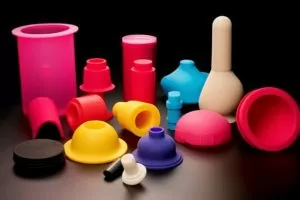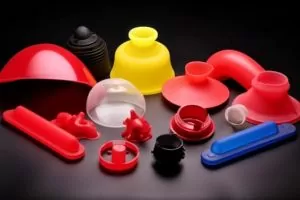Silicone rubber is a rubber whose main chain is composed of alternating silicon and oxygen atoms, with two organic groups usually attached to the silicon atom. Silicone rubber has good low-temperature resistance, and generally still works at -55℃.
After the introduction of phenyl, it can reach -73℃. The heat resistance of silicone rubber products is also outstanding, and it can work for a long time at 180℃, it can withstand a little above 200℃ for several weeks or longer and still have elasticity, and it can withstand high temperatures of more than 300℃ instantly. The permeability of silicone rubber is good, and the oxygen transmission rate is the highest among synthetic polymers.
As one of the most important expressions of silicone, silicone rubber components can maintain long-term elasticity within a certain temperature range, has excellent electrical properties and chemical stability, and can play a role in water resistance, ozone resistance, and aging resistance, playing an extremely important role in industry and civil use.
Silicone rubber classification
Silicone rubber can be divided into hot vulcanization type (high-temperature vulcanization silicone HTV) and room temperature vulcanization type (RTV) according to its different vulcanization mechanisms.
At present, there are about 50 room temperature silicone rubber manufacturers in China, with a production capacity of 1,092,000 tons/year and an output of about 607,900 tons.
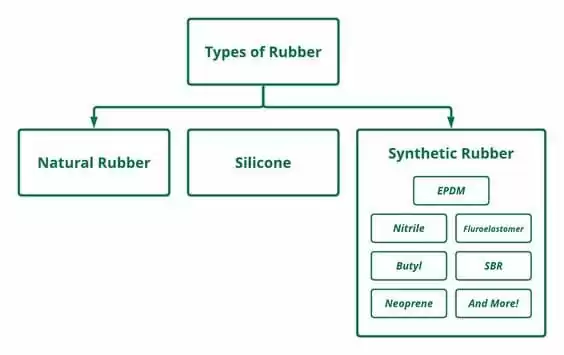
Characteristics of silicone rubber
(1) High and low-temperature resistance
Among all rubbers, the working temperature range of silicone rubber is the widest (-100 ~ 350℃).
For example, with the appropriate combination of vinyl silicone rubber or low-phenyl silicone rubber, after 250 ℃ thousand hours or 300 ℃ hundred hours of hot air aging can still maintain elasticity;
Low-phenyl silicone rubber vulcanized rubber by 350 ℃ tens of hours of hot air aging can still maintain elasticity, its glass transition temperature of -140 ℃, the vulcanized rubber in -70 ~ 100 ℃ temperature still has elasticity.
Silicone rubber for rocket nozzle inner wall anti-heat coating can withstand the instantaneous thousands of degrees of high temperature.
(2) Ozone aging resistance, oxygen aging resistance, light aging resistance, and weathering aging performance. The performance of silicone rubber vulcanized rubber does not change significantly after several years of outdoor exposure in a free state.
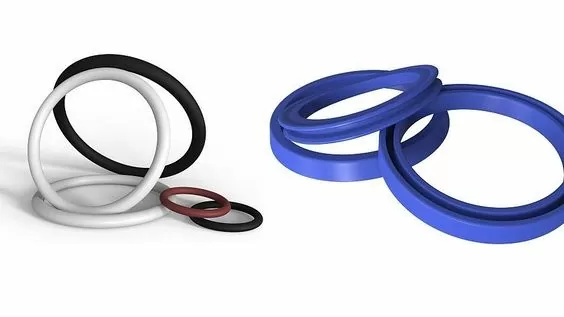
(3) Electrical insulation performance
The electrical insulation performance of silicone rubber vulcanized rubber changes little when it is exposed to moisture, frequency change, or temperature increase, and the silica generated after burning is still an insulator.
In addition, the molecular structure of silicone rubber has fewer carbon atoms and does not use carbon black as filler, so it is not easy to scorch when the arc discharge, and is very reliable in high-voltage applications. Its corona resistance and arc resistance are excellent, corona life is 1000 times that of PTFE, and arc life is 20 times that of fluorine rubber.
(4) Special surface properties and physiological inertness
Silicone rubber surface energy is smaller than most organic materials, with low moisture absorption, long-term immersion in water absorption rate of only about 1%, physical and mechanical properties do not decline, good mold resistance, and many materials do not occur bonding, can play a role in isolation.
Silicone rubber is tasteless, non-toxic, has no adverse effects on the human body, and the body tissue reaction is slight, with excellent physiological inertia and physiological aging.

(5) High permeability
Compared with other polymer materials, silicone rubber has good permeability, the permeability of nitrogen, oxygen, and air at room temperature is 30 to 40 times higher than NR; selective gas permeability, such as carbon dioxide permeability for oxygen about 5 times.
(6) Biomedical properties
The characteristics of the molecular structure of silicone rubber make it have excellent biomedical properties, as evidenced by the successful application of a large number of animal and human tests.
The application of silicone rubber
Silicone rubber has a unique combination of performance, especially the biocompatibility of silicone rubber is a key feature, it has been successfully used in other rubber with invalid occasions, solving many technical problems, to meet the needs of modern industry and daily life.
Like other rubbers, silicone rubber can be processed into a variety of profiles, hoses, organic rubber strips, rollers, rubber cloth, and other products; room temperature vulcanization type silicone rubber can be in situ large area construction, easy to use.
(1) Automotive industry
The application of silicone rubber products in the automotive industry is growing rapidly, silicone rubber (especially with a variety of characteristics of silicone rubber) can be resistant to fuel, lubricate oil erosion, improve the performance of various parts of the car, and reduce maintenance costs.
Can be used for automotive ignition wire, spark plug protection cover, heating and radiator hoses, muffler lining, battery connectors, and fluoro silicone rubber fuel pumps. With the development of vehicle electrification, room temperature vulcanized silicone natural rubber is widely used for electronic parts, electrical fittings potting material, windshield, car body around the seal and reflective mirrors, and other places of adhesive sealant.

(2) Electronics and electrical industry
The electronics and electrical industry is the earliest use of silicone rubber as insulating materials, a field with a large demand. Silicone rubber is mainly used for TV anode covers, high voltage protection covers, high voltage lead wire, refrigerator defroster wire, power or signal transmission with wire and cable, et.. Insulators made of silicone rubber will replace ceramic products widely used in power transmission lines, especially ultra-high voltage lines.
Conductive silicone rubber for electronic computers, telephones, and other instruments of electrical contacts and liquid crystal display contact parts. Flame retardant and radiation-resistant silicone rubber manufactured wires and cables are widely used in atomic power stations.
Silicone rubber heating sheets and heating tape are used to control the working temperature of many kinds of precision instruments and oil pipelines, and as heating blankets for physiotherapy heaters in medical treatment. Room temperature vulcanized silicone rubber can be used as waterproof, moisture-proof, and shockproof potting materials.
Silicone rubber is widely used in dishwashers and washing machines for pump seals because of its performance in heat-resistant detergent solutions. Custom silicone rubber is well suited for use as gaskets on appliances such as coffee pots, electric fryers, and steam irons. Stereo headphones ear and head pads with silicone rubber can exclude external noise and are soft and comfortable.
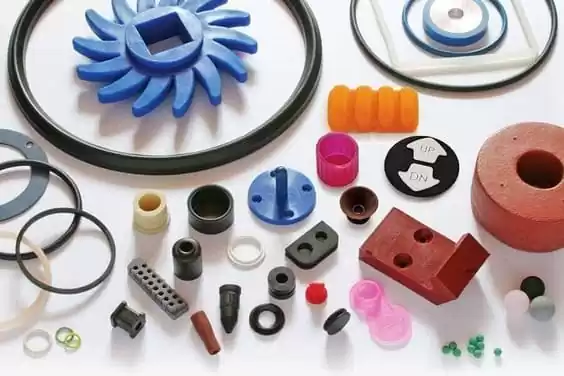
(3) Aerospace industry
Silicone rubber is an indispensable high-performance material in the aerospace industry, it can withstand the super cold of space and return to the atmosphere of the burning heat, extend the life of aircraft parts, reduce maintenance costs, and reduce accidents.
Mainly used in aircraft body cavity seals, electrical joints, sealing switches, dust and waterproof cover, gaskets, jet engines and hydraulic devices “O” seal ring, oxygen masks, control diaphragms, hot air ducts, and radar wireless shock absorbers.
(4) Construction industry
Silicone rubber has good weatherability and workability and has been widely used as an adhesive sealant in the construction industry, surpassing other types of sealants. In recent years, the development of low-modulus high-elongation two-component sealants is used for joint movement of large precast concrete and curtain wall and other large components.
Room temperature vulcanized silicone rubber is also used for sealing asbestos cement board joints, bathroom tile joints, and t, and toiletries sealing.
The future decline in rubber prices will further expand the scope of application, such as in the application of highway joints to replace asphalt and neoprene. High-temperature vulcanized silicone rubber sponge strips used are as sealing inserts for windows and doors of buildings.
(5) Medical field
Silicone rubber has good biocompatibility, small reaction to the body, stable performance, low blood coagulation, can withstand high temperature and high pressure cooking many times, and can be processed into various shapes of products, such as film, sponge, airbags, is currently the most widely used in medicine a material.
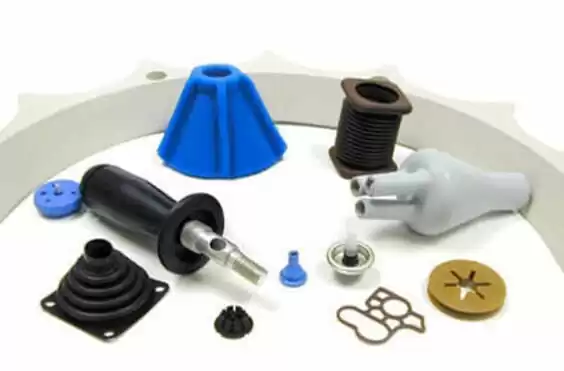
Conclusion
Silicone rubber has excellent resistance to high and low temperatures, ozone, oxygen, light, and weather aging properties, excellent electrical insulation properties, special surface properties, physiological inertness, high permeability, and a wide range of applications.
However, the tensile strength and tear strength of solid silicone rubbers are low, acid and alkali resistance is poor, and the silicone products manufacturing process of complex products is also poor performance, in recent years, the world has carried out a lot of improvement research work and has made some achievements.

